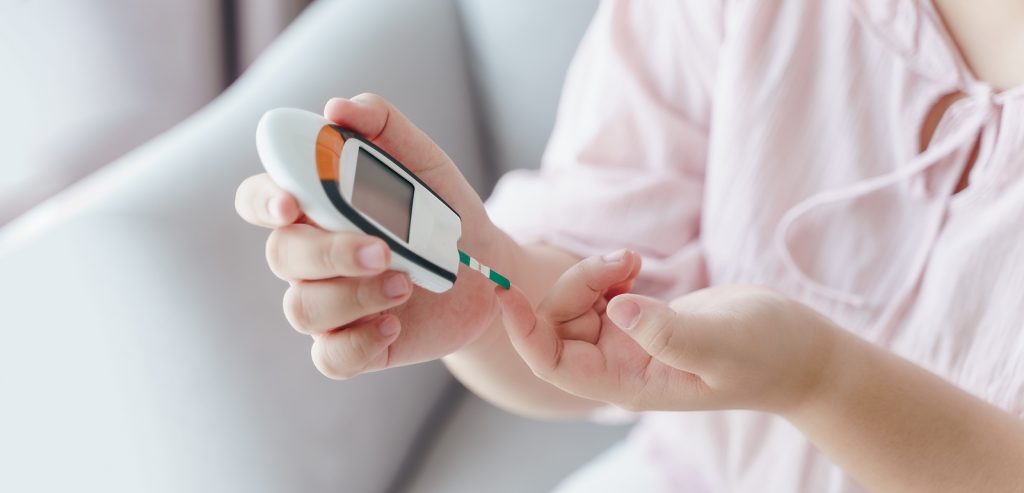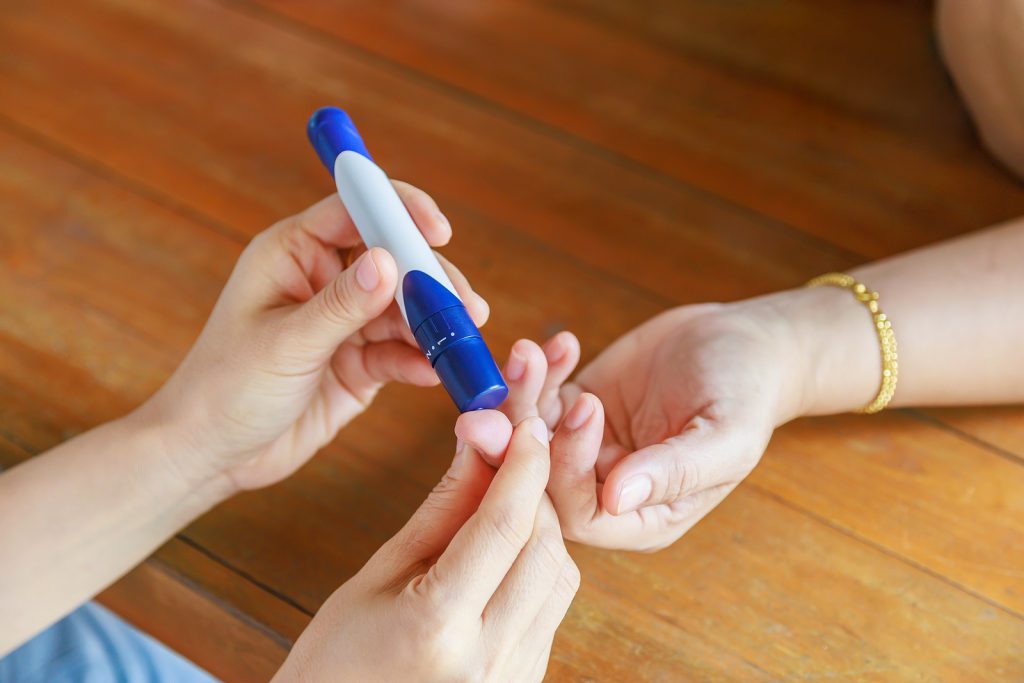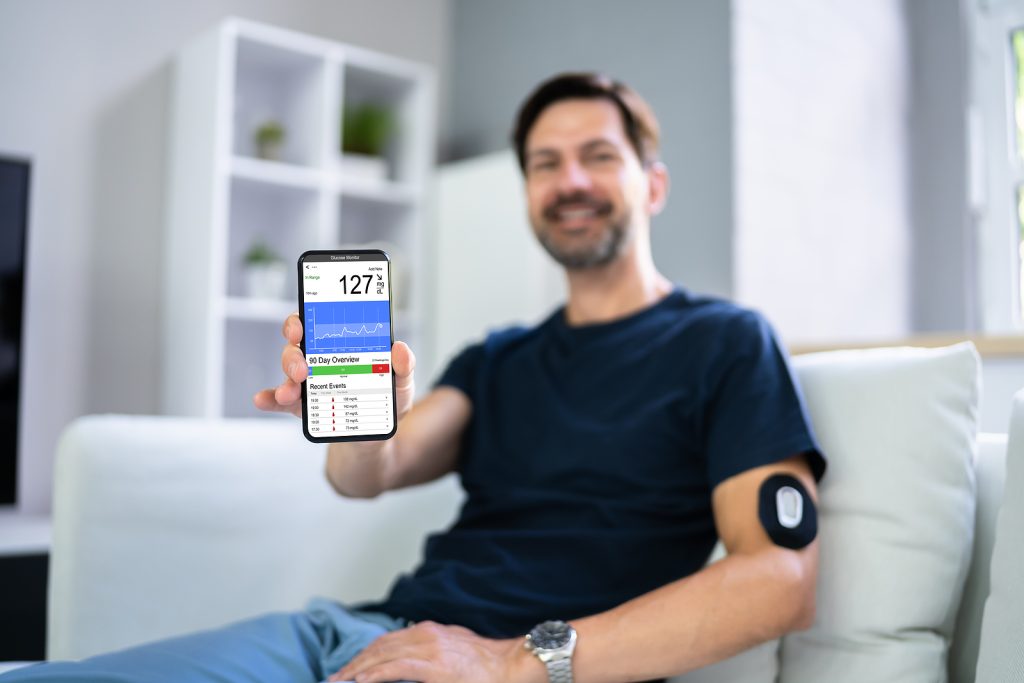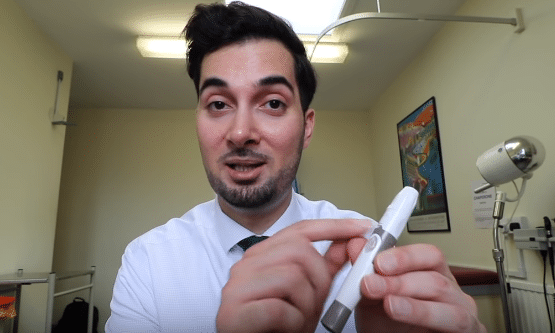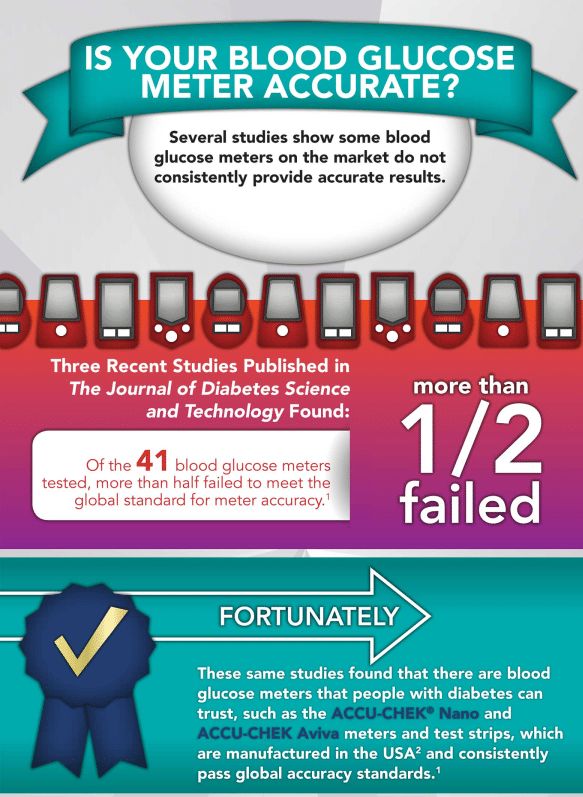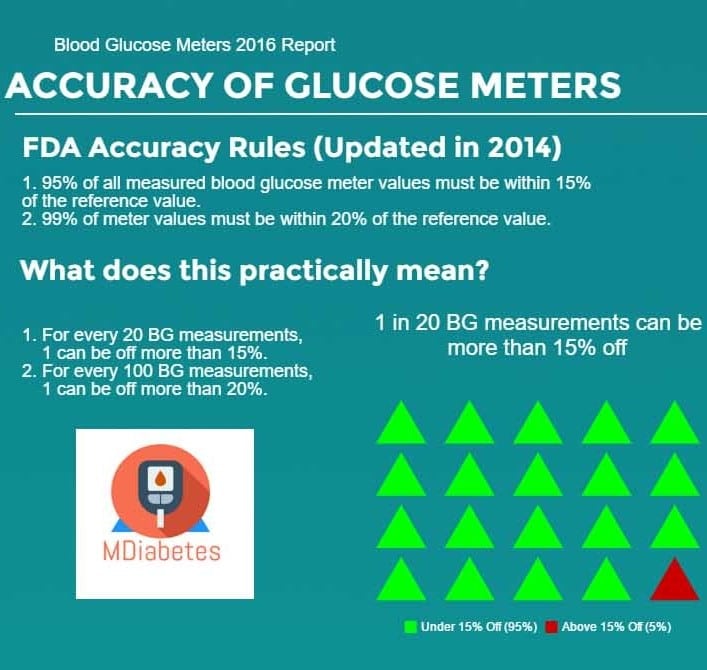Best Blood Glucose Meter: Top Picks for Accurate Blood Sugar Monitoring
Blood glucose meters are essential tools for people with diabetes to monitor their blood sugar levels. With so many options available, choosing the best blood glucose meter can be overwhelming. It’s important to choose a meter that is accurate, easy to use, and fits your lifestyle.
Understanding Blood Glucose Meters Blood glucose meters are small devices that measure the amount of glucose in a drop of blood. They work by piercing the skin with a lancet to draw a small amount of blood, which is then placed on a test strip and inserted into the meter. The meter then displays the blood sugar level in mg/dL or mmol/L.
Top Rated Blood Glucose Meters There are many blood glucose meters on the market, but some stand out for their accuracy, ease of use, and features. The top-rated meters include the Accu-Chek Guide, OneTouch Verio, and FreeStyle Libre. These meters have received high ratings from users and medical professionals alike.
Key Takeaways
- Blood glucose meters are essential tools for people with diabetes to monitor their blood sugar levels.
- Choosing the best blood glucose meter involves considering factors such as accuracy, ease of use, and lifestyle fit.
- The top-rated blood glucose meters include the Accu-Chek Guide, OneTouch Verio, and FreeStyle Libre.
Understanding Blood Glucose Meters
A blood glucose meter, also known as a glucose meter, is a medical device used to measure the amount of glucose (blood sugar) in a person’s blood. It is commonly used by people with diabetes to monitor their blood sugar levels and make informed decisions about their diet, medication, and lifestyle.
Blood glucose meters use a small sample of blood, usually obtained by pricking the fingertip with a lancet, and then analyzing the blood sample with a test strip. The test strip contains enzymes that react with glucose in the blood, producing an electrical signal that is measured by the meter. The meter then displays the blood glucose level in milligrams per deciliter (mg/dL) or millimoles per liter (mmol/L).
There are many different types of blood glucose meters available on the market, each with its own features and benefits. Some meters are designed for frequent use, while others are more compact and portable for on-the-go testing. Some meters have larger screens and audio features for people with visual or hearing impairments, while others have advanced data management software for tracking blood sugar trends over time.
When choosing a blood glucose meter, it is important to consider factors such as accuracy, ease of use, cost, and compatibility with other diabetes management tools. It is also important to follow the manufacturer’s instructions for proper use and maintenance of the meter, as well as to consult with a healthcare professional for guidance on blood sugar monitoring and diabetes management.
In summary, blood glucose meters are essential tools for people with diabetes to monitor their blood sugar levels and make informed decisions about their health. By understanding how these devices work and choosing the right meter for their needs, people with diabetes can take control of their condition and live healthier, more active lives.
Top Rated Blood Glucose Meters
For individuals with diabetes, monitoring blood glucose levels is crucial for managing the condition. With so many blood glucose meters available in the market, it can be challenging to choose the right one. Here are some of the top-rated blood glucose meters that can help individuals manage their diabetes effectively:
Freestyle Libre
Freestyle Libre is a popular blood glucose meter that uses a sensor to measure glucose levels. The sensor is placed on the back of the upper arm and can be worn for up to 14 days. The device provides real-time glucose readings, and users can scan the sensor using a smartphone to get the readings. Freestyle Libre is known for its accuracy and ease of use.
Contour Next One
The Contour Next One is a reliable blood glucose meter that provides accurate readings. The device has a smartLIGHT feature that indicates if the blood glucose level is within the target range. The meter also has a Second-Chance sampling feature that allows users to reapply blood to the same strip within 60 seconds if the first sample is insufficient.
Dexcom G6
Dexcom G6 is a continuous glucose monitoring system that provides real-time glucose readings every five minutes. The device has a sensor that is placed on the abdomen and can be worn for up to 10 days. The readings are sent to a receiver or smartphone, and users can set alerts for low and high glucose levels.
Guardian Connect System
The Guardian Connect System is a continuous glucose monitoring system that provides real-time glucose readings every five minutes. The device has a sensor that is placed on the abdomen and can be worn for up to seven days. The readings are sent to a smartphone, and users can set alerts for low and high glucose levels. The Guardian Connect System also has a feature that predicts future glucose levels based on trends.
Contour Next EZ Diabetes Testing Kit
The Contour Next EZ Diabetes Testing Kit is a reliable blood glucose meter that provides accurate readings. The device has a feature that allows users to mark their readings as pre- or post-meal, which can help individuals manage their diabetes more effectively. The meter also has a Second-Chance sampling feature that allows users to reapply blood to the same strip within 60 seconds if the first sample is insufficient.
Overall, these blood glucose meters are some of the best in the market and can help individuals manage their diabetes effectively. It is important to choose a blood glucose meter that suits individual needs and preferences.
How Blood Glucose Meters Work
Blood glucose meters are medical devices used to measure the amount of glucose (sugar) in a person’s blood. They are commonly used by people with diabetes to monitor their blood sugar levels. Blood glucose meters work by using a small sample of blood, which is typically obtained by pricking the skin with a lancet. The blood is then placed on a test strip, which is inserted into the meter.
The meter uses an enzyme-based electrochemical reaction to measure the amount of glucose in the blood sample. The reaction produces a small electrical current, which is then measured by the meter. The meter then displays the blood glucose level in milligrams per deciliter (mg/dL) or millimoles per liter (mmol/L), depending on the unit of measurement selected.
The accuracy of blood glucose meters can vary, and it is important to choose a meter that has been tested and approved by regulatory agencies such as the U.S. Food and Drug Administration (FDA). It is also important to follow the manufacturer’s instructions for using the meter and to use fresh test strips that have not expired.
Some blood glucose meters use a continuous glucose monitoring (CGM) system, which consists of a sensor that is inserted under the skin and a transmitter that sends data to a receiver or smartphone app. CGM systems can provide more detailed information about blood glucose levels, including trends and patterns over time.
In summary, blood glucose meters work by using a small sample of blood and an enzyme-based electrochemical reaction to measure the amount of glucose in the blood. They are an important tool for people with diabetes to monitor their blood sugar levels and manage their condition.
Factors to Consider When Choosing a Glucose Meter
When choosing a blood glucose meter, there are several factors to consider to ensure that the device meets your specific needs. Here are some key factors to keep in mind:
Accuracy
One of the most important factors to consider when choosing a glucose meter is accuracy. The device should provide accurate readings consistently, as this is crucial for managing diabetes effectively. Look for a meter that has been FDA-approved and has a high accuracy rating.
Ease of Use
Another important factor to consider is ease of use. The device should be easy to operate and provide clear and easy-to-read results. Consider the size of the display, the size and shape of the device, and the size of the test strips when choosing a meter.
Cost
Cost is also an important consideration when choosing a glucose meter. The cost of the meter itself, as well as the cost of test strips and other supplies, can add up quickly. Look for a meter that fits within your budget and has affordable supplies.
Special Features
Some glucose meters come with special features that can make managing diabetes easier. For example, some meters have built-in memory that can store past readings, while others have Bluetooth connectivity that allows you to track your readings on your phone or computer. Consider what features are important to you when choosing a meter.
Comfort
Comfort is also an important consideration when choosing a glucose meter. Look for a meter that is comfortable to hold and use, and that has a lancing device that is easy to use and minimizes discomfort.
Safety
Finally, safety is an important consideration when choosing a glucose meter. Look for a meter that has safety features such as a warning system for low or high blood sugar levels, and that has been tested for safety and reliability.
By considering these factors, you can choose a glucose meter that meets your specific needs and helps you manage your diabetes effectively.
Continuous Glucose Monitors Vs Glucose Meters
When it comes to managing diabetes, monitoring blood glucose levels is a crucial part of the process. Two of the most common tools for measuring blood glucose levels are continuous glucose monitors (CGMs) and glucose meters.
A glucose meter is a handheld device that requires a small blood sample to measure glucose levels at a single point in time. CGMs, on the other hand, continuously monitor glucose levels throughout the day and night, providing real-time data on glucose trends and patterns.
One advantage of CGMs is that they can detect trends and patterns that may not be apparent with a glucose meter. For example, a CGM can alert the wearer to a sudden drop or rise in glucose levels, allowing them to take action before it becomes a more significant issue.
Another advantage of CGMs is that they require fewer fingersticks than a glucose meter. While a glucose meter requires a new blood sample for each reading, a CGM can provide continuous monitoring without the need for additional fingersticks.
However, CGMs can be more expensive than glucose meters, and they require more maintenance. CGMs require regular calibration and sensor replacement, which can be time-consuming and costly.
Ultimately, the choice between a CGM and a glucose meter depends on individual needs and preferences. Some people may prefer the convenience and affordability of a glucose meter, while others may benefit from the continuous monitoring and trend analysis provided by a CGM.
Insurance and Blood Glucose Meters
Insurance coverage for blood glucose meters varies depending on the policy and the insurance provider. Some insurance plans cover the cost of blood glucose meters, while others require patients to pay out-of-pocket for these devices.
Patients should consult their insurance provider to determine what is covered under their policy. Some insurance providers may cover the cost of a blood glucose meter, but not the cost of the test strips required to use the device. Patients should also be aware that some insurance providers may only cover the cost of a specific brand or model of blood glucose meter.
If a patient’s insurance plan does not cover the cost of a blood glucose meter, there are still options available. Many manufacturers offer discounts or rebates to patients who purchase their devices. Patients may also be able to purchase a blood glucose meter through a pharmacy or medical supply store at a reduced cost.
It is important for patients to have access to a blood glucose meter to monitor their blood sugar levels and manage their diabetes. Patients should work with their healthcare provider and insurance provider to determine the best options for obtaining a blood glucose meter and the necessary supplies.
Glucose Meter and Smartphone Integration
Many blood glucose meters now come with smartphone integration, allowing users to easily track and monitor their blood sugar levels on the go. This integration can be achieved through a variety of methods, including Bluetooth capability, phone apps, and even smartwatch compatibility.
One of the main advantages of glucose meter and smartphone integration is the ability to easily track and store data. With the use of a smartphone app, users can easily log their blood sugar readings and view trends over time. This can be especially helpful for individuals who need to closely monitor their blood sugar levels, such as those with diabetes.
In addition to tracking and storing data, some glucose meter apps also offer additional features such as reminders to take medication or eat a snack. These reminders can help users stay on top of their health and avoid dangerous blood sugar dips or spikes.
Another advantage of glucose meter and smartphone integration is the ability to easily share data with healthcare providers. Many apps allow users to easily export their data and send it to their doctor or other healthcare professional. This can be especially helpful for individuals who need to regularly check in with their healthcare team and make adjustments to their treatment plan.
Overall, glucose meter and smartphone integration can be a useful tool for individuals looking to better manage their blood sugar levels. With the ability to easily track and store data, receive reminders, and share information with healthcare providers, individuals can take a more proactive approach to their health and well-being.
Importance of Regular Blood Sugar Testing
Regular blood sugar testing is an essential component of managing diabetes and maintaining good health. Monitoring blood sugar levels is crucial for people with diabetes to prevent complications such as nerve damage, kidney disease, and blindness.
By testing blood sugar levels regularly, individuals with diabetes can learn how their body responds to different foods, medications, and activities. This information can help them adjust their diabetes management plan to keep their blood sugar levels within a healthy range.
Blood sugar testing is also important for individuals who are at risk of developing diabetes. Regular testing can help identify early signs of diabetes and allow for early intervention to prevent or delay the onset of the disease.
There are various blood glucose meters available in the market that can help individuals monitor their blood sugar levels easily and accurately. It is important to choose a meter that is easy to use, reliable, and provides accurate results.
In conclusion, regular blood sugar testing is crucial for managing diabetes and preventing complications. Individuals with diabetes should test their blood sugar levels as recommended by their healthcare provider and adjust their diabetes management plan accordingly. Those who are at risk of developing diabetes should also consider regular testing to identify early signs of the disease.
Lifestyle and Blood Sugar Levels
Maintaining a healthy lifestyle is essential for keeping blood sugar levels in check. A balanced diet, regular physical activity, and stress management can help individuals with diabetes manage their condition effectively.
Food
Eating a balanced diet that is rich in fiber, whole grains, fruits, and vegetables can help regulate blood sugar levels. Individuals with diabetes should avoid processed foods, sugary drinks, and foods high in saturated and trans fats.
Exercise and Physical Activity
Regular exercise and physical activity can help lower blood sugar levels and improve insulin sensitivity. It is recommended to engage in at least 150 minutes of moderate-intensity aerobic exercise per week, along with strength training activities twice a week.
Stress Management
Stress can cause blood sugar levels to spike, so it is essential to manage stress effectively. This can include practicing relaxation techniques such as deep breathing, yoga, or meditation.
In summary, maintaining a healthy lifestyle is crucial for managing blood sugar levels. A balanced diet, regular exercise, and stress management can help individuals with diabetes keep their condition under control.
Medical Insights and Expert Opinions
When it comes to managing diabetes, accurate blood glucose monitoring is crucial. Medical professionals recommend regular monitoring to maintain optimal blood glucose levels and prevent complications. In this section, we will explore the medical insights and expert opinions on the best blood glucose meters available in the market.
According to the American Diabetes Association, there is no one-size-fits-all approach to choosing a blood glucose meter. Factors such as cost, accuracy, ease of use, and personal preference should be considered when selecting a meter. The healthcare provider can help patients choose the best meter that fits their needs.
The Mayo Clinic recommends that patients choose a meter that requires a small blood sample, has a large display screen, and is easy to use. It is also essential to check if the meter has a memory function to store past readings for future reference.
Experts suggest that patients check the accuracy of their meter by comparing its readings with those obtained from a laboratory test. The Centers for Disease Control and Prevention recommends that patients calibrate their meter regularly and replace the test strips and lancets as needed.
In conclusion, choosing the best blood glucose meter is a personal decision that should be made in consultation with a healthcare provider. Patients should consider factors such as cost, accuracy, ease of use, and personal preference when selecting a meter. Regular monitoring using an accurate meter is essential for effective diabetes management.
Conclusion
In conclusion, choosing the best blood glucose meter is an important decision for those managing diabetes, whether it be type 1 or type 2. The accuracy and ease of use of the device can greatly impact the user’s ability to monitor their blood sugar levels and manage their condition effectively.
After researching and analyzing various blood glucose meters, it is clear that there is no one-size-fits-all solution. Each meter has its own strengths and weaknesses, and the user’s individual needs and preferences should be taken into consideration when making a decision.
Some of the factors to consider when choosing a blood glucose meter include accuracy, speed, ease of use, cost, and additional features such as Bluetooth connectivity or data tracking. It is also important to consider any specific needs, such as a larger screen for those with poor eyesight or a meter that requires a smaller blood sample for those who struggle with hypoglycemia.
Ultimately, the best blood glucose meter is the one that fits the user’s needs and allows them to effectively manage their diabetes. By taking the time to research and compare different options, users can make an informed decision and take control of their health.
How To Test Blood Sugar | How To Use Glucometer | How To Check Blood Glucose
This video is a thorough guide on how to test your blood sugar levels properly. I’ve also included some really useful tips which I believe everyone should know.
Blood Glucose Meter Top Picks
Best Overall: Contour NEXT Diabetes Testing Kit at Amazon
Source
“Works with an app where you can track your blood sugar levels.”
Best Overall Runner Up: Care Touch Diabetes Testing Kit at Amazon
“It can store up to 300 readings.”
Best Budget: True Metrix Blood Glucose Meter at Walmart
“An affordable, accurate way to read your blood sugar.”
Best for Travel: iHealth Smart Wireless Testing Kit at Amazon
“It works either independently or with your smartphone.”
Best for Home: O’WELL Contour NEXT EZ Testing Kit at Amazon
“Alarms can be set to remind you when it’s time to test.”
Easiest to Use: One Touch Ultra2 System Kit 1 at Amazon
“Reliable and easy to use.”
Best for Data Management: Dario Blood Glucose Meter Kit at Amazon
“It can help you keep track of things like carbs, exercise, and medications.”
Is your Blood Glucose Meter accurate?
Were you aware that a selection of Blood Glucose meters designed for consumers delivers dependable and precise readings consistently? To delve deeper into the research behind BG meter precision and access valuable insights, explore the accompanying infographic.
Source
Accuracy of Glucose Meters
Here is a comparison of data gathered from the FDA files
Source


